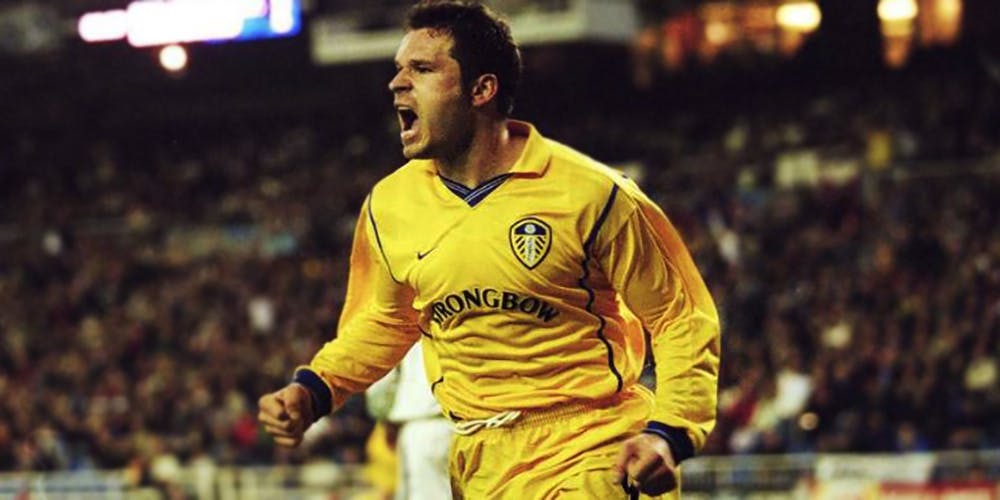

Mark Viduka is a retired Australian soccer player born on 9th October 1975. He was a center forward player on the field. He was the captain of the Australian Soccer team during the 2006 Fifa cup, which ended being the best performance of the team. He also played for some of the most prestigious clubs like Middlesborough, Newcastle United, Leeds United and Celtic. Due to his remarkable performances and iconic goal and play slide, he became a favorite of Australian fans. Some of Viduka’s nicknames are V-Bomber and Big Dukes.
Mark’s father had moved to Australia from Croatia in the 1960s. Hence not a lot is known about his family roots. His family was never completely unacquainted with the game as Croatian footballer Luka Modric is his cousin. Mark has three sons with his wife, Ivanka.
A center forward player, in the UEFA Champions League, he scored four goals, which is the highest number of goals scored by an Australian player. Notably, he was only 18 years old at that time.
Viduka’s career kickstarted in 1993, with a Croatian based club called Melbourne Knights. He was with the club for two seasons, in which he became the top goal scorer and was awarded the Johnny Warren medal twice for NSL Best player of the year. Viduka’s international career started in 1994. He debuted in a friendly series against South Africa, where Australia won both the games.
After his stint with the knights in 1995, he moved to Croatia Zagreb with which he stayed for three and a half seasons. The Croatian league awarded him the Best Foreigner Footballer Award for leading his team to victory in three doubles. As part of the Australian National Soccer team, he competed in the 1997 Confederation Cup. The team won against Mexico in their first group game but were defeated by Brazil in a 6-0 loss. In the final against Brazil, Viduka received a red card in the first half of the game.
In 1998, Viduka joined the Celtic club. There in his first match in 1999, he led his team to a 4-2 victory. He scored 27 goals in his first full season, thus being voted as Scottish Player of the Year. In the 1999-2000 Scottish League Cup, Viduka led his team to victory. Completing his first full season, he left the club.
Leeds United signed Viduka for the 2000-01 season. His very first season saw him scoring 22 goals for the team. Leeds thereafter signed Viduka for a five-year stint with the club. He remained a top scorer for most of his sign up. Eventually, due to the rising financial burden of the team, Leeds had to sell off Viduka.
At the start of his season with Middlesborough, Viduka suffered a few injuries, but his performance remained impressive. With his successful performance, he garnered the interest of many clubs who were hoping to sign him in. In September 2005, Viduka was signed as a captain for the Australian Soccer team in place of the injured captain Craig Moore. In the World Cup qualifier, Australia won against the Solomon Islands with a 7-0 victory.
It was noted that Viduka’s best years were under coach Guus Hiddink. In 2006, Australia qualified to participate in the World Cup for the first time. He was named the Australian captain for the world cup.
In 2007, Viduka joined Newcastle United. In his very first debut game, Viduka scored his first goal against Middlesborough. During his entire stint, he suffered some major injuries resulting in him not being able to play for the majority part. But he remained a valuable player for the team as he continued scoring goals for his team.
Viduka is considered an Australian Soccer icon and a legend and rightly so. Starting from the early stages of his club career, Viduka’s skills and abilities were duly recognized. Josip Simunic noted his exceptional ability to hold the ball and coordinate well with the other players. In the Charlton game, during his stint with Leeds United, he scored a hat-trick, which is to date the latest hat trick by a Leeds player in the premier league. The grandstand at the Knight’s Stadium was named ‘Mark Viduka Stand.’
All his life, Viduka struggled to be accepted by the hostile Australian crowds due to his Croatian roots. By the middle of his career, he had found his spot in the hearts of the Australian fans. He converted his fans from believing he was a Croatian descendent playing for the Australian team to believing he is an Australian player of Croatian heritage. Often the best player in the clubs and teams he was a part of, he earned his rightful spot as an Australian Soccer legend.